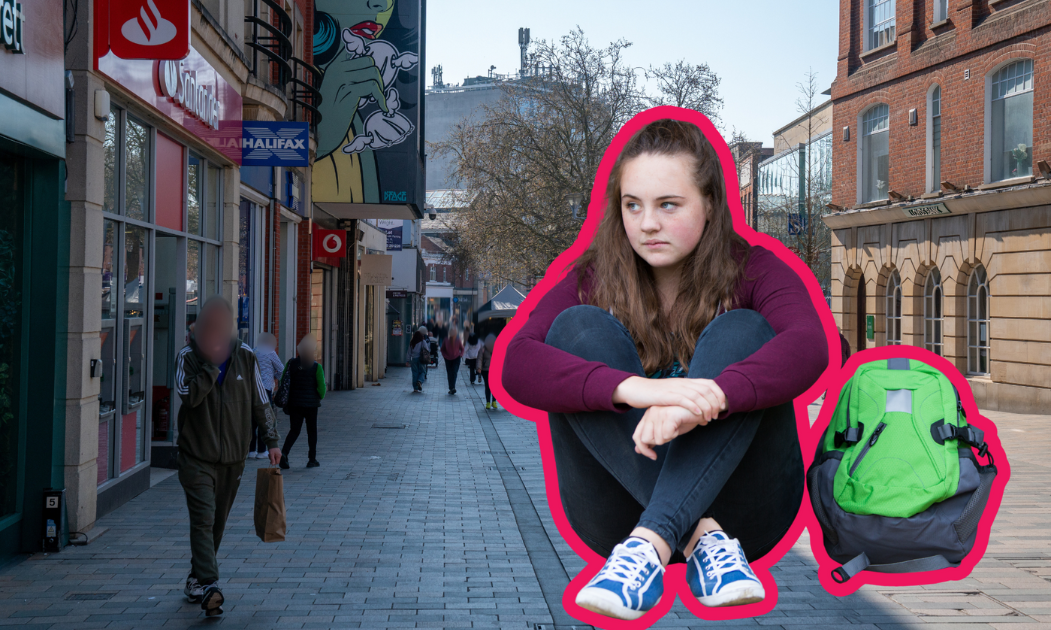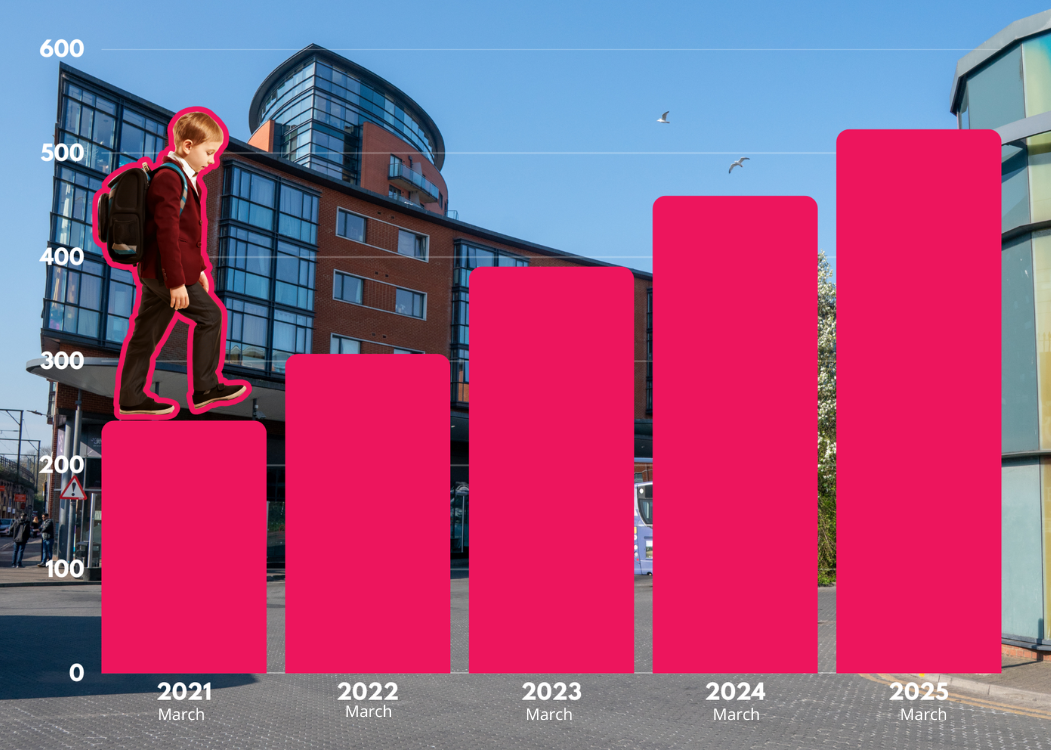New Chelmsford strategy sets out plans to tackle homelessness

Prevention is key, says city council
Chelmsford City Council has unveiled a new five-year plan to reduce homelessness and rough sleeping across the district. The 2025-2030 Homelessness & Rough Sleeping Strategy was developed in consultation with local residents, charities and frontline services. It lays out how the council plans to respond to rising housing need over the next five years.
Amidst national pressures on housing, the strategy focuses strongly on early support, partnership working, and increasing specialist support for the most vulnerable.
Homelessness up sharply
The strategy doesn’t shy away from the scale of the challenge. Like much of the UK, Chelmsford has seen homelessness rates climb sharply in recent years. This has been driven by factors like rising rents, the national shortage of social housing, and growing numbers of families being made homeless and having to live in council-funded temporary accommodation.
However, the strategy also offers a cautiously hopeful vision. The council pledges to redouble its efforts, not only to react to the current housing crisis and to continue improving Chelmsford’s affordable housing supply, but also to work creatively and compassionately to prevent homelessness before it begins.
Rising pressure, limited supply
Chelmsford currently has over 500 homeless households living in temporary accommodation staying in places like hotels, modular units, or privately rented properties leased by the council. The majority of these households are families with children.
The number of people sleeping rough in the city remains relatively small, averaging 19 in any given month. But this figure masks a larger and more complex problem. For every person on the streets, there are dozens more sofa-surfing, living in overcrowded housing, or stuck in a home where they aren’t safe.
““We’re absolutely committed to helping people who are homeless or at risk of homelessness.
Cllr Lynne Foster, Deputy Leader and Cabinet Member for a Fairer Chelmsford
“But the reality is that more and more people are finding themselves in danger of losing their home, and although we’re doing all we can to build more affordable homes in Chelmsford, there isn’t enough accommodation available for them all.”
According to the strategy, there is a shortfall of hundreds of homes in the district and this problem has more than doubled since 2020.
Previously, the council used privately rented homes to bridge the gap, but this is no longer possible. Rents have risen dramatically across the country. In Chelmsford, they now outstrip the Government’s housing benefit rates by as much as £500 per month for a typical two-bed family home.

The danger of delay
One of the key messages in the new strategy is the importance of acting early. Last year, more than a quarter of homelessness cases involved young people who could no longer stay in the family home, often due to relationship breakdown or overcrowding.
““People often come to our housing officers when they’re in a crisis, in urgent need of somewhere to live, but unfortunately, social housing hasn’t been built at scale in this country for decades and we now don’t have the supply to give suitable homes to everyone in need.
Cllr Lynne Foster, Deputy Leader and Cabinet Member for a Fairer Chelmsford
“We have to really prioritise and try to make the most of limited availability. However, we can often help people stay where they are, so long as we know early enough that they’re in trouble.”
This might include mediation with family members, short-term help to bridge rent gaps, or even support for private tenants to negotiate with landlords. Once someone has already left home or been evicted, the options become more limited and often mean time spent in temporary housing.
Ideally, temporary accommodation is for emergency use, like housing families made homeless by fire or floods. It’s not always nice to live in and can involve moving people away from Chelmsford and the places they work, go to school, and meet friends or family. But in August 2025, over 500 households were living in it.
Commitment to creating more temporary accommodation
Because local rents are so high, the council often has to use temporary accommodation providers who charge by the night. This is hugely expensive, costing money which could be invested into proper housing for local people in need.
Use of temporary accommodation is already slowing down as the city council works to make more affordable homes available instead, and it aims to intensify these efforts. However, it will still be needed for the foreseeable future. The new strategy underscores the council’s commitment to creating more temporary accommodation which is comfortable to live in and financially sustainable.
Dispelling myths, managing expectations
As part of the strategy’s roll out, the council is launching a public awareness campaign later this year to clear up some common myths around homelessness.
Recent survey data shows that while most Chelmsford residents believe homelessness is a serious issue, many still associate it with addiction, mental health crises and street sleeping.
In reality, the top causes of homelessness locally are eviction by friends and family, no-fault eviction by landlords, and domestic abuse.
While 97% of residents surveyed recognised that someone sleeping rough counts as homeless, only 75% thought the same of someone in a refuge, and 16% didn’t think sofa surfers were homeless. In fact, all of these situations are legally classed as homelessness.
““There’s a lot of compassion in our community, but stigma and incorrect assumptions are still attached to homelessness, and that could stop people coming forward when they’re faced with it themselves.
Cllr Lynne Foster, Deputy Leader and Cabinet Member for a Fairer Chelmsford
“We need to widen people’s awareness that homelessness can happen pretty easily, it’s usually not because you’ve done something wrong, and it’s best to approach us for help as soon as you start to worry.”
Domestic abuse a key cause
Chelmsford has a higher-than-average rate of homelessness caused by domestic abuse. Although many of these cases are people who come to the city from other parts of Essex, the council wants to do more to help. As well as making more safe, supported homes available for people who might be at risk from abusers, the council will consider ways to end the unfairness of victims becoming homeless.
This might include removing abusers from family homes, working with housing providers to transfer tenants, and providing victims with better information about housing options.
Swift help for people who need extra support
Nationally, the number of people sleeping rough has risen by 20% in the last year. This rise hasn’t happened in Chelmsford, suggesting that the council’s interventions are working. But there is more to do. Those who do end up sleeping on the streets will be helped as quickly as possible.
The council has already brought together a wide range of agencies and charities who work with rough sleepers, from the police and health services to Chelmsford CHESS. It works with these partners to share information, using the Streetlink app to take reports of new rough sleepers and approach them quickly to offer help.
Plans for more supported accommodation
Offering support at this critical early stage helps hundreds of people in Chelmsford each year. However, a small number become entrenched as rough sleepers despite offers of help and accommodation. They need extra support and may not always trust agencies offering it.
To help this group, the council is relaunching its ‘Housing First’ approach, which provides those in need with a high level of support and time to adjust to living away from the streets. It also plans to increase the supply of supported accommodation, where the most vulnerable can live with access to help for whatever challenges they are facing. Before they move on to their own privately rented home, support workers prepare them to manage a tenancy.
Read the strategy
You can read the strategy in full on the Chelmsford City Council website.
If you’re worried about becoming homelessness, it’s best to contact the council straight away. You can use the online form or call the housing solutions team on 01245 606400 (or 01245 606644 if it’s out of hours).
